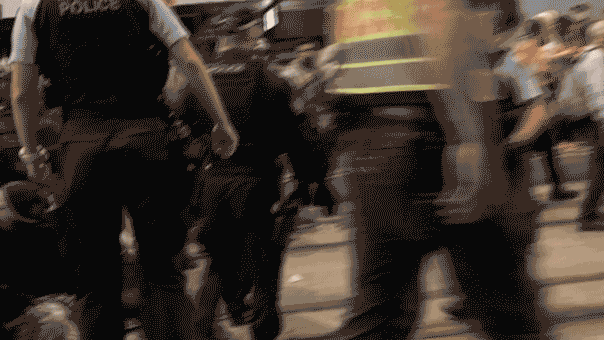Reports across Germany of organized sexual assault attacks
Country's refugee policy faces fierce criticism; Analysis on 'The Kelly File'
The German government wants to ease the rules for deporting foreign criminals in the wake of the New Year's Eve assaults in Cologne, two senior officials said Tuesday.
The planned reform of laws on deportation and sexual offenses would "significantly" lower the legal hurdles for expelling foreigners who commit serious crimes, Interior Minister Thomas de Maiziere said.
"That's a hard but right response by the state to those who are seeking protection here, but think they can commit crimes" without consequences, de Maiziere told reporters in Berlin.
Justice Minister Heiko Maas, who announced the plans alongside de Maiziere, said that public pressure following the Cologne assaults had played a role in getting the plan agreed so quickly.
Cologne police say 553 criminal complaints have been filed with them in connection to the New Year's attacks. About 45 percent involve allegations of sexual offenses.
Police say most of the suspects are believed to be foreigners, including at least some asylum-seekers. Many were described as being of "Arab or North African origin."
The changes, which have to be approved by the Cabinet and Parliament, would mean that any custodial sentence for crimes against another person's bodily integrity, including sexual assaults, as well as violent thefts, would be grounds for deportation. Youth sentences would be covered too.
Many asylum seekers who commit crimes currently avoid deportation because the danger they face in their home country is considered greater than the reason for deporting them.
Separately on Tuesday, a top German police official said he doesn't believe the New Year's Eve assaults in Cologne and elsewhere were linked to organized crime.
Holger Muench, the head of Germany's Federal Criminal Police Office, told RBB Inforadio that "the same conditions were in place at different locations," with crowds of people gathering to celebrate the new year.
"I am not saying that there was no organization, but it is not organized crime," he said. "That would have a different quality for me. We would be talking about ... hierarchical groups."
However, "what we see here is perpetrators communicating with each other and making arrangements ... and of course we must recognize better where they do this, how they do this," Muench said.
The assaults have heightened tensions over Germany's migrant influx and prompted politicians to consider tougher laws against migrants who commit crimes.
Cologne police say they have identified 23 possible suspects. Separately, 32 suspects have been identified by federal police, who are responsible for train station security.









































